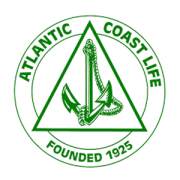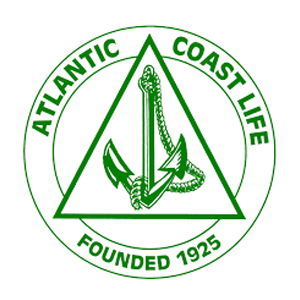
The $65 Million Question: What License is Needed to Sell under DOL Rule?
By Kim O’Brien – InsuranceNewsNet – October 5, 2016
Since Americans for Annuity Protection launched its AskAAP program in August (available as a free benefit to AAP members), we’ve received hundreds of questions about the DOL Rule, its impact on annuity advisors and what it means to act as a fiduciary under the rule.
This week we highlight the most frequently asked question: Do I need a Series 65 to sell a qualified annuity IRA?
The short answer is NO. We will explain why in a bit, but first let’s understand what licenses are available to annuity advisors and what they authorize the licensee to do. We’ve compiled information from the FINRA, SEC and
Investopedia websites. There are three categories of regulators who oversee the licensing: State Insurance Departments, FINRA and the NASAA.
Of course, all annuity advisors must hold an insurance license from the state in which they sell annuities. It is usual for the licensing state to be determined based on the address of the annuity buyer. So, if the annuity buyer lives in Arizona you must hold a valid life insurance license issued by the state of Arizona.
As an advisor and/or agency holding a valid state insurance license, you are authorized to sell fixed annuities only; including fixed indexed annuities.
FINRA – Financial Services Regulatory Authority Licensing Breakdown
FINRA offers several different types of licenses needed by both representatives and supervisors. Each license corresponds to a specific type of business or investment. While there are several licenses which focus on specific types of securities, there are three general licenses that the majority of representatives and advisors usually obtain:
Series 6: The Series 6 license is known as the limited-investment securities license. It allows its holders to sell “packaged” investment products such as mutual funds, variable annuities and unit investment trusts (UITs). Principals who supervise representatives holding a Series 6 license must obtain the Series 26 license in addition to having already obtained the Series 6.
Series 7: The Series 7 license is known as the general securities representative (GS) license. It authorizes licensees to sell virtually any type of individual security. This includes common and preferred stocks; call and put options; bonds and other individual fixed income investments; as well as all forms of packaged products (except for those that also require a life insurance license to sell).
The only major types of securities or investments that Series 7 licensees are not authorized to sell are commodities futures, real estate and life insurance.
Those who carry this license are officially listed as “registered representatives” by FINRA, but they are generally referred to as stockbrokers. Many insurance agents and other types of financial planners and advisors also carry the Series 7 license to facilitate certain types of transactions inherent in their businesses. Principals of general representatives holding a Series 7 must also obtain the Series 24 license.
Series 3: The Series 3 license authorizes representatives to sell commodity futures contracts, which are generally considered the riskiest publicly traded investments available.
Representatives that carry the Series 3 license tend to specialize in commodities and often do little or no other business of any type.
NASAA – North American Securities Administrators Association Licensing Breakdown
Not all securities licenses are administered by FINRA. The North American Securities Administrators Association (NASAA) oversees the licensing requirements of three key licenses:
Series 63: The Series 63 license, known as the Uniform Securities Agent license, is required by each state and authorizes licensees to transact business within the state. All Series 6 and Series 7 licensees must carry this license as well.
Series 65: The Series 65 license is required by anyone intending to provide any kind of financial advice or service on a non-commission basis. Financial planners and advisors that provide investment advice for an hourly fee or a flat fee percentage of assets fall into this category, as do stockbrokers or other registered representatives that deal with managed-money accounts.
Series 66: This Series 66 is the newest exam offered by NASAA. It combines the Series 63 and 65 exams into one 150-minute exam.
Broker-Dealer Sponsorship versus RIA Requirements
Licensees must register their securities licenses with an approved broker-dealer. Those who intend to hold themselves out to the public as Registered Investment Advisors (RIAs) must register with the state they do business in if their assets under management are less than $25 million, or with the SEC if the assets exceed $25 million. RIAs do not need to associate themselves with a broker-dealer.
So what license MUST YOU HAVE to sell compliantly under the DOL’s Fiduciary Rule? That depends on the products and services you offer.
If you offer ongoing financial planning and charge a flat fee for your planning services, you will need a 65. If you want to sell variable annuities or mutual funds, you will need a Series 6 and 63.
If you simply want to offer fixed annuities and life insurance products for guaranteed income or asset protection needs, you will only need a life insurance license in the states you intend to do business.
However, if you want to give specific, individualized and tailored advice regarding the securities, mutual funds or variable annuities your client owns, you will need the appropriate additional license to do that.
On the other hand, if you limit your advice to general information about diversification, various investment markets, market risk and recent or historic economic activities, your state insurance license authorizes you to have those general conversations and you do not need additional FINRA or NASAA licenses to do so.
Of course, the insurance-only advisor must and should discuss client’s objectives, needs, risk tolerance, liquidity and time horizon as required by suitability and, if applicable, fiduciary compliance.
You may ask why is AAP so sure that you DON’T need a Series 65 to continue selling annuities in a DOL fiduciary world? Because the DOL states just that in the rule:
The Department published proposed new and amended exemptions from ERISA’s and the Code’s prohibited transaction rules designed to allow certain broker-dealers, insurance agents and others that act as investment advice fiduciaries to nevertheless continue to receive common forms of compensation that would otherwise be prohibited, subject to appropriate safeguards.
While a recommendation to move (or not move) qualified money to an annuity triggers the fiduciary duty, that does not mean you must now be Series 65 licensed. Don’t be lured by misleading marketing or opportunistic recruiters.
Get the license(s) you need to help the clients you choose with the products and services you offer.
Yes, as an insurance-only agent you may be leaving assets on the table because of insurance company suitability guidelines or licensing restrictions. And, yes, if you want to provide ongoing financial planning services, you will need to be licensed to do so.
But, if you choose to be an insurance specialist assessing your client’s insurance needs and you want to provide knowledgeable and competent analysis on what insurance solutions will best fulfill those needs, be an insurance-only advisor. Your services and skills are sorely needed in our overblown world of market risk and investment product idolatry. ________________________________________
Kim O’Brien is the vice chairman and CEO of Americans for Annuity Protection. She has 35 years of experience in the insurance industry. O’Brien served The National Association for Fixed Annuities (NAFA) for almost 12 years and led the organization to defeat he SEC’s Rule 151A.
http://insuranenewsnet.com/innarticle/1040908








